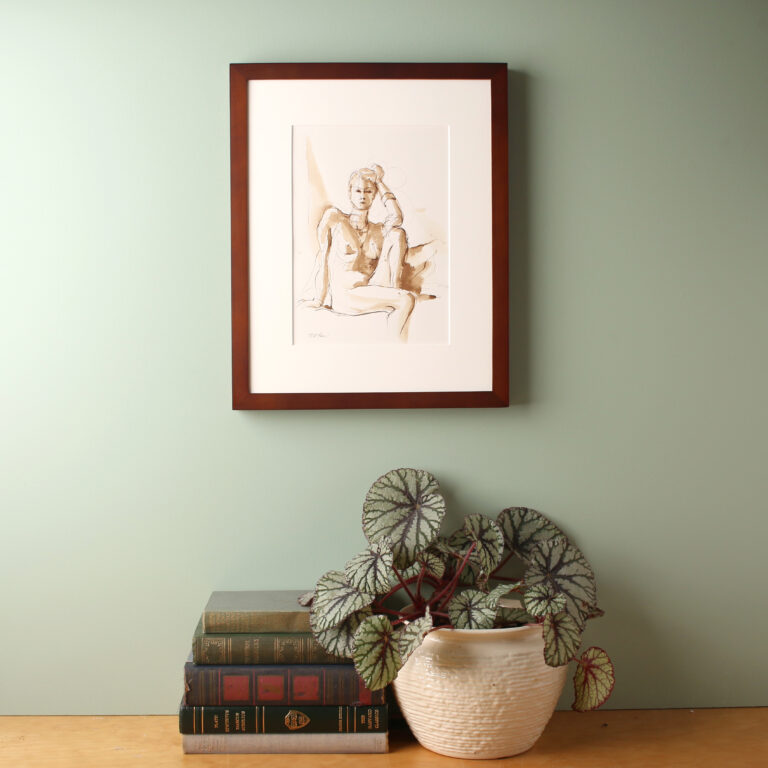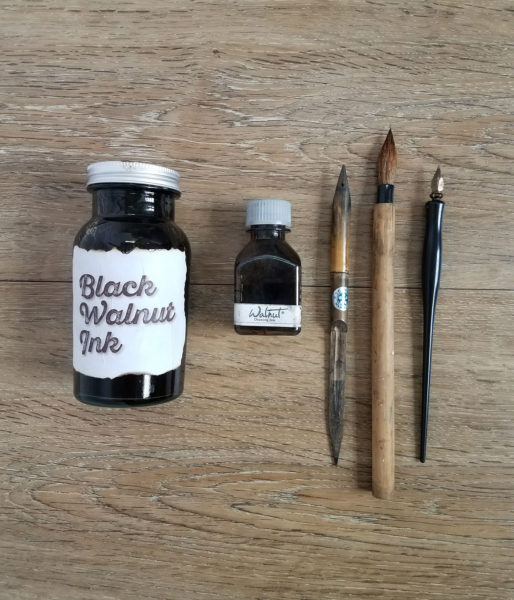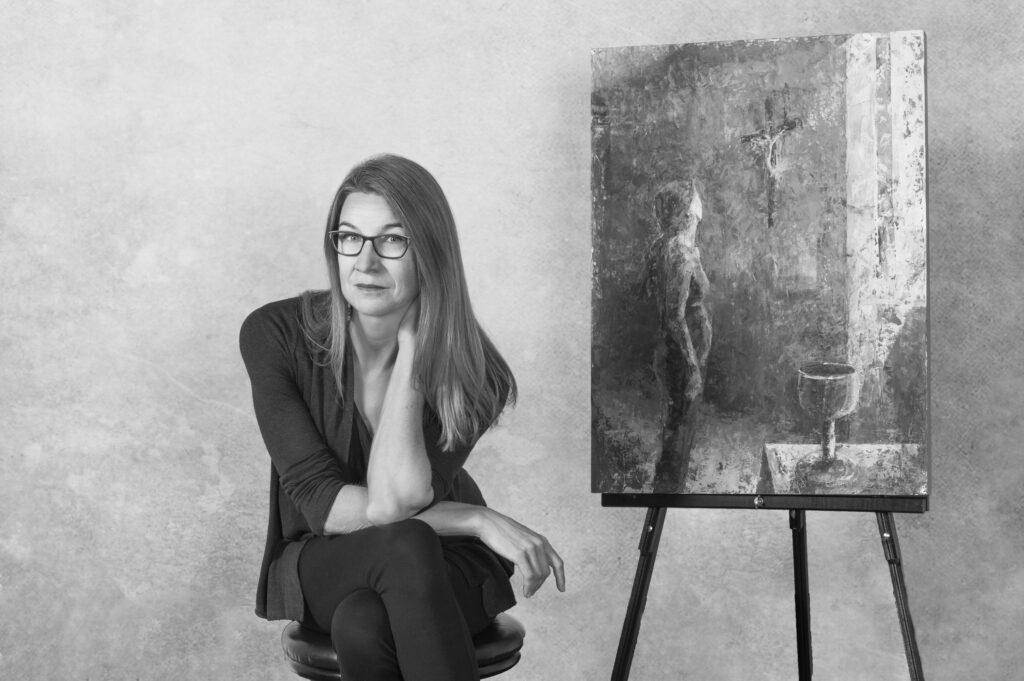Italy Influences Ink Figure Drawings
As I’ve previously shared, my time in Italy was a major influence on all parts of my life, including my ink figure drawings. A while back I met someone at an art event who had also spent many months in Italy. She emailed me the next day after discovering from my website that I had spent time in Italy. She had spent childhood summers in Rome, and although she only saw ink figure drawings and not my Italy-themed oil paintings at my show, she “felt that spirit.”
The influence of Master Ink Figure Drawings
I spent three years in Italy in my early 20s. That part of my life is increasingly distant in time. However, I am continually surprised by how much it continues to influence my life and artistic choices. Usually I think about the influence of Medieval and Renaissance art on my paintings, but not my drawings.
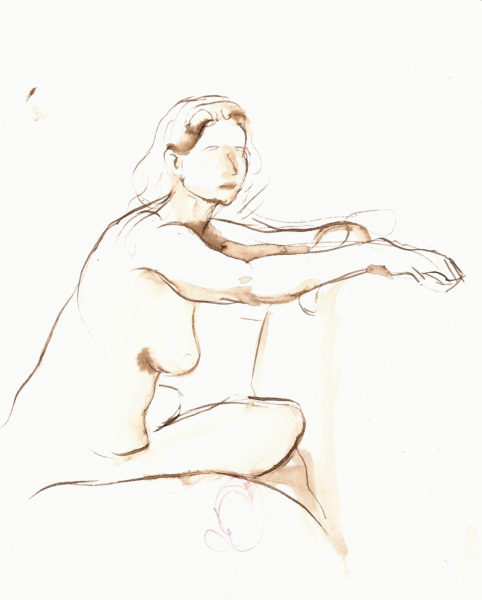
Seated Female Nude Walnut Ink on Paper, ©Michelle Arnold Paine 2018. Click to Purchase
However, these figure drawings also bear the influence of my time in Italy. The drawings of Renaissance and Baroque artists Giovanni Battista Tiepolo, Luca Cambiaso, Raphael, Michelangelo, and of course Rembrandt (he wasn’t Italian but his works are found all over Europe) have all had a profound impact on my work. Each of these artists use expressive line and quick washes of ink to convey emotional power and drama. Although master drawings are difficult to find and display, I know that in my time in Italy I was able to see many.
Traditional Ink Drawing Materials from Italy
During that time in Italy I discovered that simply by using the traditional materials of a nib pen and a bottle of ink, I could create calligraphic lines similar to those of the old masters (Click here for more on drawing with ink). I was immediately hooked. While I was working with a study abroad program in Orvieto, a visiting professor shared his morning adventures with me. At lunch he told me about a local antique store where he had bought some pen nibs. I went back with him to the antique store. Did he ask me to help him translate or did I know that I wanted to buy some too? I can’t remember, but I still use the nibs I bought that day more than fifteen years ago!
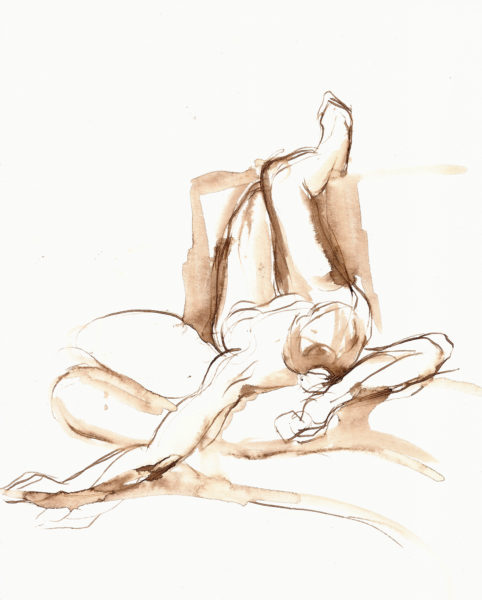
Reclining Female ©Michelle Arnold Paine 2018 Walnut Ink on Paper. Click to Purchase
Connecting with the Essentials
When looking at drawings by Tiepolo, such as these from the Morgan Library in New York you see that simplicity is the name of the game. He tries to capture the big ideas first, and the details don’t even seem necessary. The line expresses the areas of tension and torque in the body but with few descriptive details. In my first figure drawing class I remember my professor telling us to try and feel the pose in our own bodies.
This is part of what I love about capturing the human form: it is a means of connecting to another person. I can look at another person’s pose and have a sense of what they are feeling in their hips or shoulders or that their arm might fall asleep… it is a part of our shared experience as human beings.

